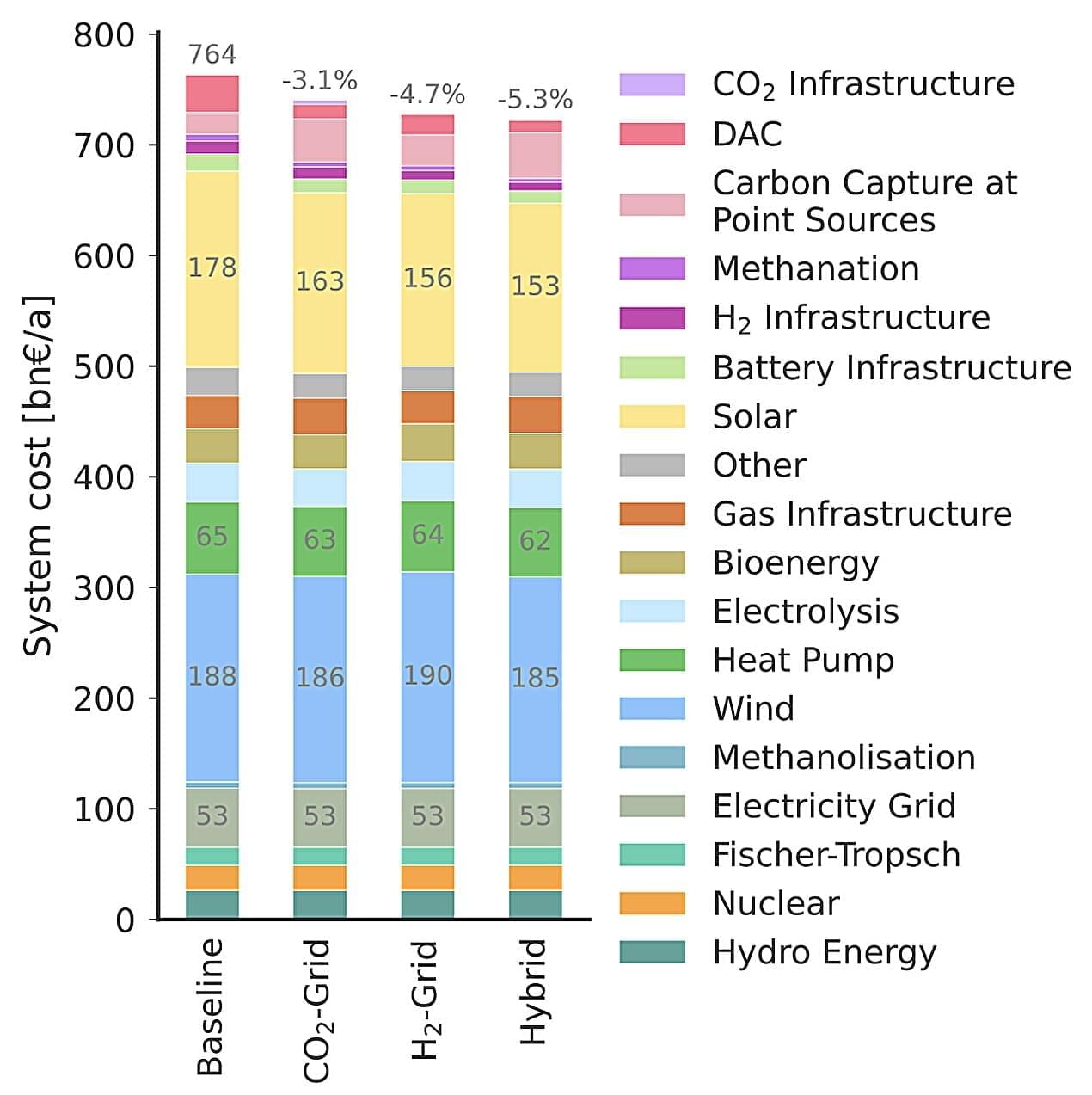Over the past decades, many countries worldwide have been trying to gradually transform their energy systems, with the aim of reducing carbon emissions and mitigating the adverse effects of climate change. Hydrogen and carbon dioxide (CO2) transport networks, infrastructures designed to transport hydrogen gas and captured CO2, could support the shift towards climate-neutral energy systems.
Researchers at Technical University Berlin carried out a study aimed at better understanding the extent to which hydrogen and CO2 transport networks could contribute to the future de-carbonization of the European energy system. Their paper, published in Nature Energy, suggests that both these types of networks could play a key role in establishing a sustainable and clean European energy system.
“In our view, we are envisioning a climate-friendly economy which relies as little as possible on fossil fuels and respects socio-economic considerations,” Fabian Hofmann, first author of the paper, told Tech Xplore.
